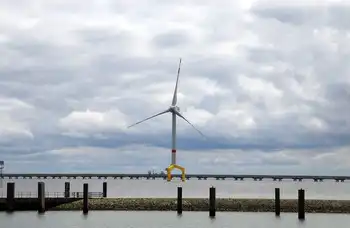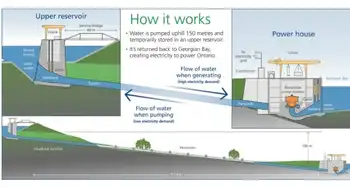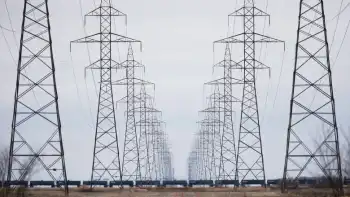Quebec says no to transmitting Labrador power
By CTV News
NFPA 70e Training
Our customized live online or in‑person group training can be delivered to your staff at your location.

- Live Online
- 6 hours Instructor-led
- Group Training Available
Premier Danny Williams slammed the Quebec energy board’s decision as “a blatant disregard” for the fundamental electricity market principle of non-discrimination.
“What Quebec has done today is to tell the people of Canada and the United States that they will go to any lengths to ensure they have market dominance over electricity markets in northeastern North America,” Mr. Williams said in an interview from St. John’s.
“It’s completely anti-competitive.”
Quebec Natural Resources Minister Nathalie Normandeau refused to comment on the ruling, and a spokesman said the board is a quasi-judicial body and its decision stands on its own.
The Quebec energy board ruling is the latest milestone in the acrimonious relationship between Quebec and Newfoundland over electricity projects in Labrador. The Atlantic province is also suing Quebec for a better deal under the 1969 agreement that led to construction of the Upper Churchill Falls power project in Labrador, a deal that has proved hugely lucrative for Hydro-Québec.
The provinceÂ’s energy company, Nalcor Energy, has begun engineering work on a 3,000-megawatt project down river from the original site, and hopes to sell the power in the province itself, as well as in export markets.
Nalcor has several applications with Hydro-Québec’s TransÉnergie to transmit power to U.S. markets, and also hopes to deliver as much as 1,400 megawatts to Ontario. It disputes Hydro-Québec’s contention that there is no capacity available and that it would cost $3-billion to construct the transmission infrastructure to handle Nalcor’s request. Nalcor had complained to the Quebec energy board, saying TransEnergie was obliged to provide access to third parties looking to export power.
In its decision, the Quebec energy board, know as the Régie, upheld TransEnergie’s argument that any unused capacity has already been allocated to Hydro-Québec’s own projects.
A key factor in the dispute is the status of the Upper Churchill project, which is owned by Nalcor but supplies virtually all of its power to Quebec under the 1969 agreement. The Régie ruled that the Upper Churchill’s entire 5,000-megawatt transmission capacity is earmarked for Quebec residents, while Newfoundland insists that 1,000-megawatts of that should be available to it.
Mr. Williams was irate that the energy board ruled that Upper Churchill is under the control of Hydro-Québec.
Nalcor can pursue the matter at the U.S. Federal Energy Regulatory Commission, which requires any electricity utility that sells into U.S. markets to allow open access to their transmission grid for other would-be exporters.
In the meantime, Nalcor continues to pursue other more costly transmission options, including an underwater cable to the Maritimes, and the construction of new transmission capacity in Quebec.
“This decision is precisely why we are pursuing two alternative routes to market,” said Nalcor chief executive officer Ed Martin.
Nalcor is planning to link LabradorÂ’s Lower Churchill project with the island of Newfoundland by way of an underwater cable, and an environmental assessment is currently under way. The company is also pursuing a subsea link to the Maritimes and the United States.











